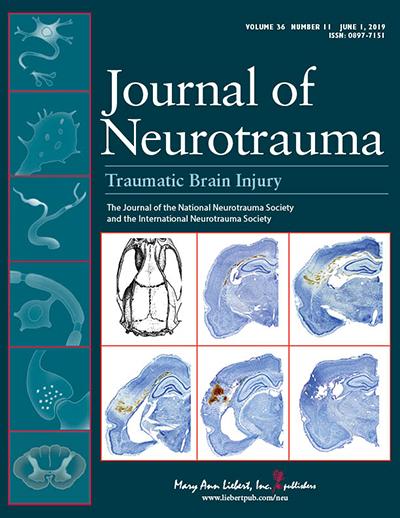
Credit: (c) 2019 Mary Ann Liebert, Inc., publishers
New Rochelle, NY, June 25, 2019–Researchers have shown that higher intelligence and younger age are predictors of greater cognitive recovery 2-5 years post-mild to severe traumatic brain injury (TBI). In contrast, injury severity, as measured by the duration of post-traumatic amnesia, was not associated with greater or worse long-term cognitive recovery, as supported by a study published in Journal of Neurotrauma, a peer-reviewed journal from Mary Ann Liebert, Inc., publishers. Click here (https:/
“Cognitive Reserve and Age Predict Cognitive Recovery Following Mild to Severe Traumatic Brain Injury” is the title of the study written by Jennie Ponsford, Monash University-Melbourne and coauthors from Monash University and Epworth HealthCare, Melbourne, Australia. In this longitudinal study, the researchers were not surprised to find that all of the TBI patients performed significantly worse on initial measures of intelligence (IQ tests, including assessments of reading, attention, memory, and executive function) after the injury compared to a healthy control group. Within the TBI group, shorter duration of post-traumatic amnesia, younger age, and higher IQ were associated with better initial cognitive performance.
John Povlishock, PhD, Editor-in-Chief of Journal of Neurotrauma, notes that: “This is an extremely important study in that it confirms the long-held clinical impression that age and premorbid IQ are important factors in determining outcome from traumatic brain injury. As noted by the authors, these findings strongly endorse the role of cognitive reserve and age in the cognitive recovery seen following traumatic brain injury which, as such, should help inform prognostication and rehabilitation.”
###
About the Journal
Journal of Neurotrauma is an authoritative peer-reviewed journal published 24 times per year in print and online that focuses on the latest advances in the clinical and laboratory investigation of traumatic brain and spinal cord injury. Emphasis is on the basic pathobiology of injury to the nervous system, and the papers and reviews evaluate preclinical and clinical trials targeted at improving the early management and long-term care and recovery of patients with traumatic brain injury. Journal of Neurotrauma is the official journal of the National Neurotrauma Society and the International Neurotrauma Society. Complete tables of content and a sample issue may be viewed on the Journal of Neurotrauma website.
About the Publisher
Mary Ann Liebert, Inc., publishers is a privately held, fully integrated media company known for establishing authoritative peer-reviewed journals in promising areas of science and biomedical research, including Therapeutic Hypothermia and Temperature Management, Brain Connectivity, and Tissue Engineering. Its biotechnology trade magazine, Genetic Engineering & Biotechnology News (GEN), was the first in its field and is today the industry’s most widely read publication worldwide. A complete list of the firm’s 80 journals, books, and newsmagazines is available on the Mary Ann Liebert, Inc., publishers website.
Media Contact
Kathryn Ryan
[email protected]
Original Source
https:/
Related Journal Article
http://dx.




